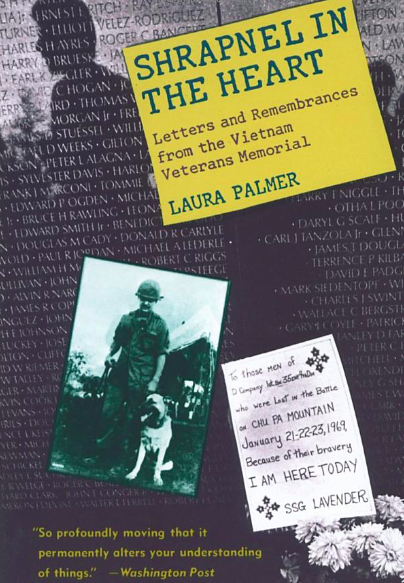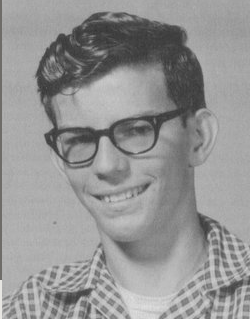Born Aug. 20, 1948, he arrived in Vietnam on Dec. 11, 1967, assigned to Fox Company, 2nd Battalion, 3rd Marine Regiment, 3rd Marine Division. He was on a patrol about 8 kilometers north of Dien Ban in Quảng Nam Province, when he stepped on the booby trap that sent shrapnel wounds to his body and head. He’d been in Vietnam for just eight days.

The story of Eddie Lynn Lancaster and others who died in Vietnam are chronicled by journalist Laura Palmer in her 1988 book titled “Shrapnel in the Heart,” as she tracked down the people behind the notes left at the memorial since it was completed in 1982. Palmer, who had been a war correspondent in Vietnam toward the end of the conflict, combed through more than 6,000 remembrances that the National Park Service has saved in a warehouse in Maryland.
She was looking to answer the question: How had Vietnam and the loss of a loved one in war changed the lives of the families? What were the stories of these men and women whose names are on the wall?
“Shrapnel in the Heart” is one of the most profoundly raw books about the impact of war on those who bear the losses others can never experience. It’s a cathartic read that will bring you to tears, no matter how hardened you are to the realities of war.
The Washington Post wrote that the collection of personal family stories in the book is, “so profoundly moving that it permanently alters your understanding of things.”
“Nothing I can write, no story I can tell, will erase anyone’s pain, but it can, I hope, crack the isolation which is the tyranny of grief,” Palmer wrote in the introduction.
Palmer was one of the few women war correspondents in Vietnam and was on one of the last helicopters out of the country on April 29, 1975, as the North Vietnamese took control, beginning their final attack on Saigon on that day.
Laura Palmer is now a hospital chaplain.
